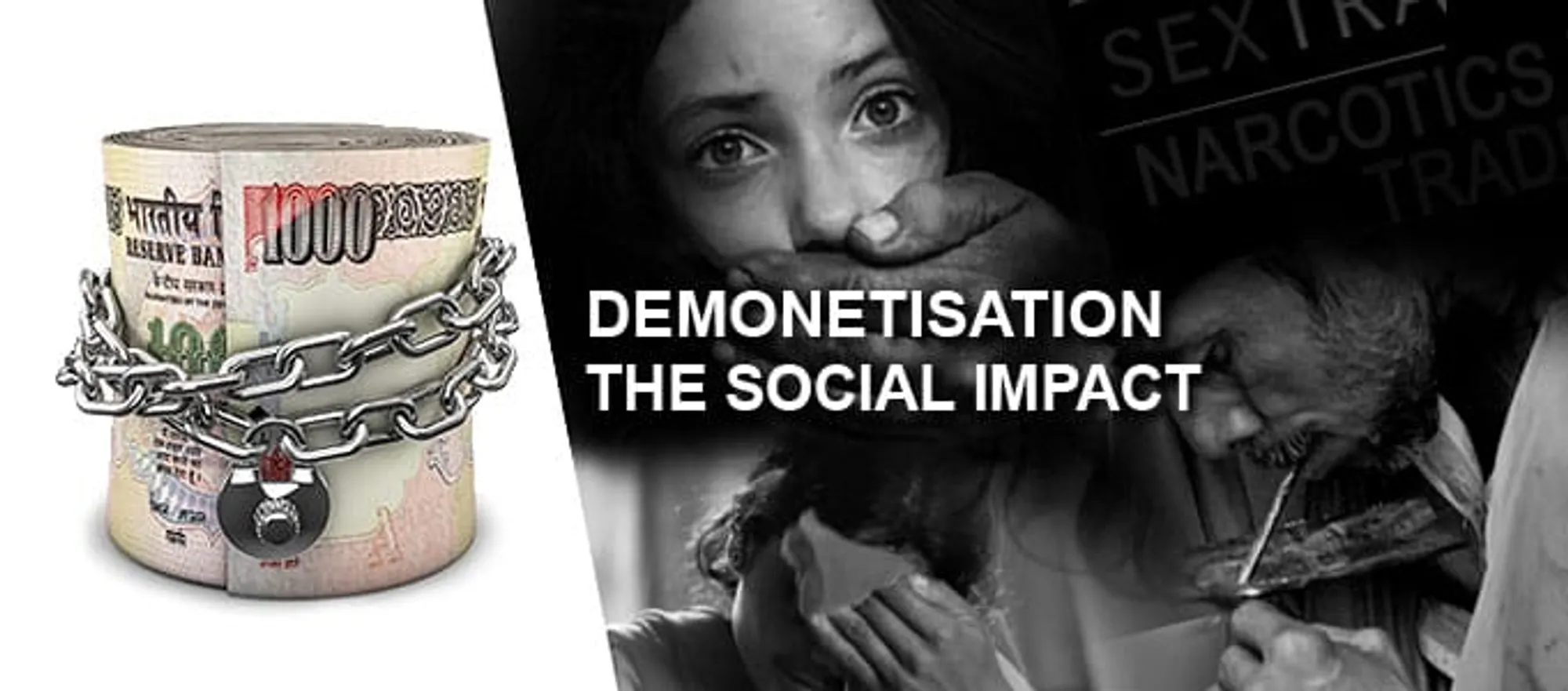Post November 8, the country has been debating on whether it helps to have a cashless economy or not. With that, there have been discussions going on about how exactly to convert the economy into a digital one.
Somewhere in the background, this move towards turning into a cashless economy has shown its effect on the social set up too. First, Demonetisation has brought the trafficking of women and girls for sex work to a stop. It has been estimated that this has been a Rs 20 trillion industry.
The process of trafficking of women is usually completed by November, after which trafficked women and girls are transported to various parts of the country to be sold to brothels, placement agencies and as child brides. Post demonetisation and the withdrawal of the Rs500 and Rs1000 currency notes, this trade, is said to have suffered a significant blow.
Typically, the sex trafficking is carried on from Guwahati in Assam, Jharkhand in the North and Chennai, Bangalore and Hyderabad in the south. There hasn’t been any record of even one girl being trafficked in the past one month. Transactions related to this trade were carried out in cash. With the supply of notes in the economy reduced, people were suddenly left with no liquidity to pay to the middlemen.
Sex trafficking is one of India’s biggest organized crime rackets. The “cost” of a woman or girl is usually pegged at Rs2.5 lakh. This includes the cost of transporting her, paying off local politicians, authorities and police officials and finally, the cost of grooming her.
Actual costs, however, are as low as Rs 20,000. The remaining Rs 2.3 lakh is taken by the trafficker or the middleman. A study by Global March against Child Labour (a network of trade unions, teachers, and civil society organizations) has estimated that the annual figure in India for this kind of trafficking is about Rs 18.6 trillion.
Cash payments dominate the category of prostitution too. There have been many media reports of sex service workers asking clients for digital payments – something that could prove to both awkward and arduous for people who indulge in these services.
One of the major impacts of the demonetisation process has also been felt in the Narcotics Trade. This has been another huge section of trade, and most marketing takes place through Afghanistan and other ports. Black money rules this business.
In Maharashtra and Himachal, drug trade came to a virtual standstill after the government announced demonetisation. Drug peddlers found it difficult to sell their stock after high-value currency went missing from the economy. Even small transactions were affected – with most of the drug players having gone into hiding till the market gets into revival mode.
Supply of narcotics from Jammu & Kashmir and Himachal Pradesh into Maharashtra and other states has also gone down. The Narcotics Bureau has found that while the drug detection rate might be the same as before demonetisation, the quantity of drugs seized from the peddlers now is much less than earlier.
With all this, is also the effect on one of the key objectives of the demonetisation process namely, terrorism. The idea was to make fake notes flowing in from Pakistan, mostly in 500 and 1000 rupee denominations, useless. In doing so, black money, a significant source of terrorist funding, would dry up.
Behind the overwhelming debates, discussions and criticism of the demonetisation process that we have been seeing in the past one month or so, there have been some silent positive social effects too. For all other detailed processes and policies on the eco-political impacts, do keep in touch with our posts on our website www.nrilegalservices.com

